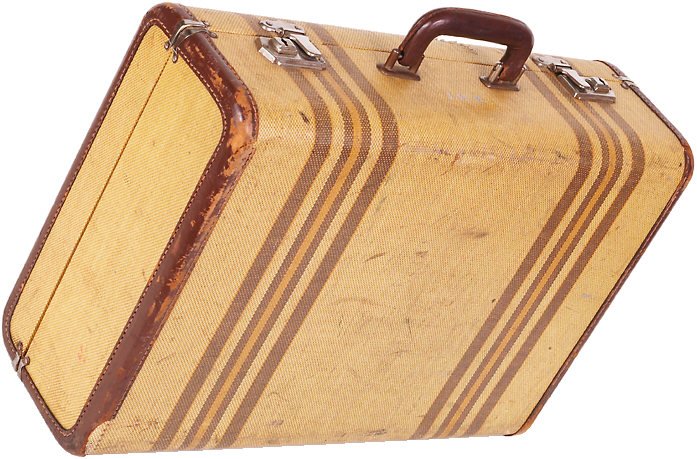Please note that the following works are protected by copyright and are available for sale through Featurewell.com, only.
A Job of One's Own
By Chelsea Lowe
Boston Globe Sunday Magazine
Joblessness did nothing to ennoble my brother. Rob spent hours at home, watching TV, gaining weight and arguing with his housemates. Like me, he's held dozens of jobs: He's washed dishes at a soup kitchen, run errands for a publishing house, and made sundaes for the local convalescent home's "happy hour."
His work experiences haven't differed greatly from my own. Nor, when you come down to it, anyone else's. I've folded blouses, handed out fliers, worked in telemarketing and food service. Now, we're both doing work we enjoy. I'm a freelance writer. Rob's a steward. He heads to the casino each weekday in a bright-green uniform, punches in his security code, and it's off to the dish room, where he helps wash and sort plates and silverware for thousands of company employees. "I try to be on my feet at all times," he says. "This is not a slow job, mind you. People are throwing things, like, in your face." "So you try to stay alert?" I ask. "No, not really."
At the same time, the work force began to include more "differently abled" employees. You can't walk into most grocery or convenience stores without encountering mentally challenged people at work. At one suburban market, the cashier asked what kind of bag I wanted. When I answered "both," I received my groceries in two bags - one paper and one plastic. I smiled. Close enough. My brother is significantly learning-disabled. If you talked with him, you'd conclude he was mildly retarded. Had he been born 20 years earlier, he probably would have wound up living with his parents, then me. As it happens, our family had means and foresight enough to enroll him in a residential school that taught him independent living and work skills.
Rob says he loves his new job, then adds, "Whatever that's supposed to mean." He mentions the pace, his co-workers, free lunch at the giant buffet, and, above all, the salary. "Big bucks," he boasts. Not really.
Already, Rob is outspending his earnings. Last month, his expenses included a DVD player and a $100 donation to the Christopher Reeve Paralysis Foundation. After his substantial taxi bill (seizures prevent him from driving, and he lives far from a bus line), he clears, I would guess, about $40 a week. But then, he doesn't need the money. His parents see to his expenses. What he needs is the pride and satisfaction of usefulness and earning.
As everyone knows, it's hard not to feel defined by our jobs. No matter how I used to answer that ubiquitous party question - "I raise money for public broadcasting," "I'm an unsuccessful writer" - I felt unimportant. Don't we all? My telemarketing job netted me more than my first year of freelance writing (and provided health benefits and holiday pay, besides). But I can't say I was happier. I can't, in fact, say I was happy. Now, I can, despite my initial "earning disability."
Finding one's place in the world can take time; inevitably, there are missteps. At the end of one long-ago job interview, Rob received a tour of the facility, including the restroom, of which he immediately availed himself - to the horror of his would-be boss (female, at that), who was standing beside him.
Both of us find office politics bewildering. Rob used to tell me one contentious co-worker needed to "change her ways." (Good grief: She was the boss's daughter.) He complained endlessly about another supervisor allowing her dog into the restaurant kitchen. As far as I know, the dog still comes to work in that kitchen. Rob doesn't. Slowly and steadily, my brother and I are finding happiness in what we do and who we are. We're creating places for ourselves - like anybody else
The features below are available in their entireties from Featurewell.com
With Its Bullies, Cliques, Rules, Office Resembles 6th Grade
By Chelsea Lowe
Boston Sunday Globe
As I worked on another newspaper article, I found myself gravitating toward the computer's toolbar for a quick word count. Four hundred twenty three words. Halfway there, I thought. It felt eerily like writing a grade-school book report. One hundred words, counted by hand: sixty-one, sixty-two. . .
Nothing replicates childhood more than working for others. Each of us feels like a kid trying to please parents, outshine whiny siblings and put one over on teachers. We're supposed to be doing homework or office work, but often sit at our desks instead, looking busy while playing computer Solitaire. We still have to turn in reports and sometimes put them off till the last minute. Most of us want to avoid getting picked on by the other kids, who may have bigger offices or live in nicer towns. You keep an eye out for bullies, braggarts and obnoxious jerks and, later, discuss them over dinner. Some of us even fake a temperature to stay home and watch TV (one way to get out of turning in projects that need one more day). Or play hooky and go to the beach. In the morning, we rush through a glass of juice and bowl of cereal (maybe some sugary affair our mothers wouldn't let us have) and head off, perhaps to the bus or the carpool. I wonder whether the tough customers still sit at the back of city buses, the better to make mischief, unseen. We eat lunch in cafeterias, or bring something from home. Maybe even sneak snacks when the boss isn't looking. The cool kids--seniors, maybe-- go out for lunch. Small cliques still gather outside or in the bathrooms to sneak cigarettes. Alcohol is not allowed, but you hear stories. . .
When your spouse is married to the Job
By Chelsea Lowe
Boston Globe, Sydney Morning Herald
The call came on a Friday night. Dave had arrived at last, late and out of sorts, looking wilted, pale, and damp. Some problem at work, he told our friends before he even sat down. Specifics? Who remembers? There's always a problem, a crisis, a new development. He was too agitated to eat, so he said, ''I'll just keep you company.'' Great. ''Did you eat anything during the day?'' Of course not. Dave could talk of nothing but the job. That's when my cellphone rang. On the other end was a voice I knew well from many late-evening calls at home. ''Is Dave there?'' Oh, my God. His West Coast deputy, who got my cell number off of our machine. ''No!'' I sputtered into the phone. ''No. You can't talk to Dave. We're in an Italian restaurant!'' I found myself too stunned to say anything more coherent. I began to feel like a zombie fighter in ''Night of the Living Dead'' as Dave's crazed workmates crowded around me, stalking his brain. . .
Don't Touch That Remote!
by Chelsea Lowe
The Philadelphia Inquirer
Last month at a party, other guests kept shaking my hand. I hate that.I sneaked off to an alcove near the kitchen, withdrew a pre-moistened foil-wrapped wipe, and ran it over my fingers and palms. Normally, I'd have felt quite alone--but I thought of my new buddy, Adrian Monk, and smiled.Monk, you see, would have done the same thing. Infact, he does the same thing, every week on USA Network's "Monk." Except he does it out in the open. Like me, Monk (played by Tony Shalhoub) hates touching money, sleeping in the dark, sharing bathrooms with strangers, and walking around outdoors without shoes (my recurring bad dream). He can't abide handling rust, newly purchased groceries, or dirty car parts. He fears children and their germs, air travel, crowds, milk, any number of foods, and a whole lot of everythingelse. Monk is not, in the strict sense, real, but asfar as I'm concerned, he's real enough. In the so-called defective detective, I feel as ifI've found a missing twin, a character so true tolife--my life, anyway--that I'd like to shake the writers hands. On second thought, maybe not. . .
Anxious Workers Suffer Sunday-Night Syndrome
By Chelsea Lowe
Boston Globe
Sunday night is an uneasy time for systems analyst Tom Santos. With the weekend drawing to a close, the 38 year old said he finds himself thinking more and more about the next day at work. The feeling peaks right after dinner when, he said, he gets the sense that "this is your final meal before you have to go back to prison." Santos enjoys his work for a company north of Boston. But on Sunday nights, he said, "I start to think about solutions to specific problems and I have a hard time sleeping." He isn't alone. Call it Sunday-night syndrome: the anxiety or depression workers feel as the weekend winds down and Monday looms. The back-to-work blues aren't new. However, mental health and human resource professionals say that anecdotally they have noticed a sharp rise in depression and stress among workers over the past two years as the economy soured and joblessness ratcheted up. Although the national unemployment rate dropped to 6 percent last month from 6.1 percent in September, job holders remain nervous. They feel burdened from all sides as employers cut staff and demand more from remaining workers. Overstressed employees often feel trapped and pessimistic about finding more enjoyable work at a reasonable wage. These harried workers often feel as if the weekend is over by Saturday night, said specialists...
Longer clips and sound files are available on request







